Self-Development Or Shelf-Development?
In 2011 the self-help book industry in the UK was estimated to be worth at least 6 million pounds, whilst in the US its value was around the 10 billion dollar mark.
I’m one of those millions of readers who have invested significantly in both of these markets. Over the course of twenty years I’ve deposited at least £5,000 of my personal income into purchasing hundreds of self-help and non-fiction books, which now fill one and half rooms of my home in South London and growing.
But is this a chronic case of shelf development or self-development? A point brought home recently at a talk the editor in chief of the Huffington Post, Arianna Huffington gave in London.
The question posed by a woman journalist in the audience went something like this, “with all of this information and articles on well-being most people aren’t doing anything with what they’re reading.”
I sensed an air of unease amongst the audience as she launched into a long, rambling and sometimes repetitive explanation, which despite its obvious flaws in presentation was at the core, a great question.
Her question played on my mind on the drive home from the event. It was a question I had posed to myself many times before particularly when remembering the over burdened shelves of books in the two rooms in my home, claiming every imaginable wall and shelf space.
The question begging an answer was, “How much had I really changed as a result of the hundreds of books I’ve read over the years?”
Had I really been conning myself? Had I grown victim to giving away money that simply wasn’t worth the paper it was written on? And if my self-help book addiction was anything to go by, maybe I had fallen victim to what Professor Timothy D. Wilson describes as the 18 month rule – which is the person most likely to buy a book this week is someone who bought one 18 months earlier. Only my gap between purchases was more like two weeks than 18 months.
So how can you ensure your self-help books don’t end up as shelf development?
1. Choose self-help books, which include research of some kind to evidence the techniques and models presented. Two of my four books contain references to research. 49 Ways To Write Yourself Well, my third book is based primarily on research into the therapeutic benefits of writing.
I remember one of the first comments the course director, Simon Western on my post graduate qualification in coaching at Lancaster University made to our group was that, “ too many coaches had abandoned, left brain, critical thinking in favor of right brained, positive thinking, but we need both.”
I think the same is true of the self-help industry. For self-help books to not sink but swim then they need to include research and scientific data that validates the content and numerous claims made.
2. The majority of self-help books glibly evade writing about and helping the reader accept that pain is part of life and avoid dispensing tried and tested advice on how to respond and be with pain.
Self-help books that tell the truth are empowering. Trying to gloss over life with suggestions and activities that are surface level is both ineffective and unreal.
Author of one of the more recent best selling self-help books, This is How, by Augusten Burroughs (which by the way I do recommend) describes this as, “So certain feelings are denied. Which is something like believing your house is clean as long as you don’t peek under the bed.”
According to psychologist Oliver Burkeman, “instead of trying to psych yourself up into the right mood to act, learn to act alongside whatever mood you’re in.”
3. Be willing to put in the work. Most of the time it’s not that a self-help book doesn’t work. It’s that we don’t do the work that will bring about the change. “Real optimism is not the pep talk you give yourself. It is earned through the labor of emotional housekeeping,” writes Augusten Burroughs in,This Is How.
We kid ourselves that the sheer act of reading alone will somehow miraculously improve our lives and fix us in an instant without the need to lift a finger.
Some books do put me in a hypnotic trance for a moment or two (think Saved By A Poem by Kim Rosen and One Continuous Mistake by Gail Sher) but the trance soon wears off and then the challenge is to get down to work.
Fear is often the cause of our resistance to putting in the work. In her chapter, Reflections On Learning To Work, included in the book,Working It Out, psycholinguist, Virginia Valian describes our obsession with speed and production, “The culture decrees that you should do what you are good at, rather than what you most like to do; that what you produce rather than what you get out of what you produce is what counts; ….”
So often it is the application, what you get out of what you produce [or do] that creates the change or shift.
The introduction to Valian’s chapter gets straight to the point, letting the reader know exactly what reading the chapter will not do. “It will not remove your self doubts, resolve your inner conflicts, wipe away your anxieties, or eliminates your periods of mental paralysis. It will not wave a magic wand and turn you into someone who works effortlessly for hours everyday.” More self-help books should come clean like Valian does.
4. The best self-help books will address relapses and setbacks as well as provide you with further information on where to gain professional support on taking the work further.
Seek out books that include all of the above and next to your book make sure there’s pen, paper, notebook or your digital recording device. Make a note of all the actions you take and record the impact no matter how small.
As Mark Matousek, author of, When You’re Falling Dive said in a recent workshop, “dig in one place.”
I suggest to you and to myself to read a self-help book as if you’re digging in one place. Give it your full attention and focus. Test out the suggestions. Make a note of what works and do more of it.
Maybe there’s one suggestion in the book that turns out to be a real gem. Hold onto it, discard the rest and start applying what works.
As they say you can take a horse to water but you can’t make it drink. One could say the same for all the books in my collection. Put it this way if I was forced to choose a handful of books from my collection to take with me to a desert island you can bet it will be those titles where I’ve continuously put in the work, reflected on my actions and made changes and shifts as a result.
What’s the one self help book that has had the greatest impact on your life to date?
My answer:The Artist’s Way by Julia Cameron
Why: The practice of Morning pages has become a way of life for the last twenty years and is at the roots of my tag line for my business: Writing changes lives and lives, are changed by writing.
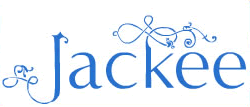
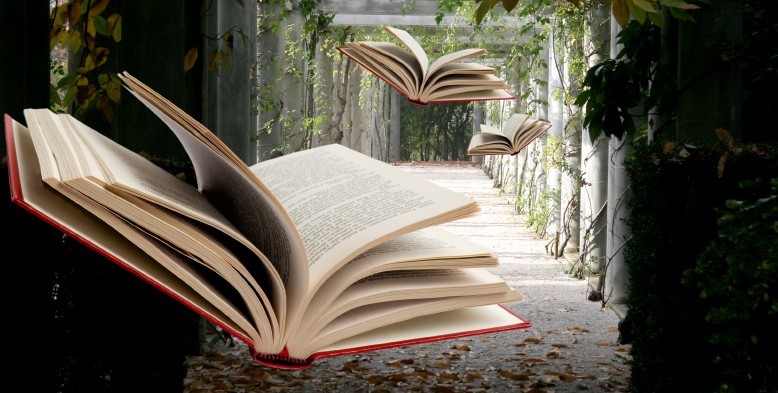
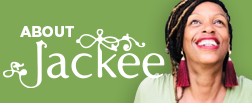
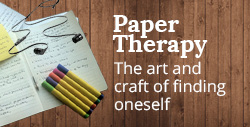
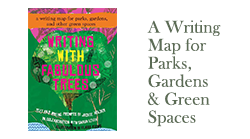
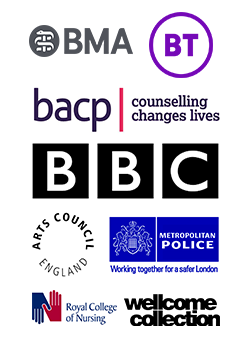
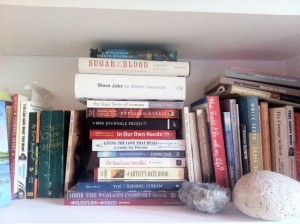
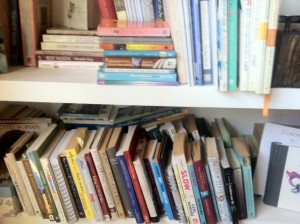
Leave a Reply
By submitting a comment here you grant Jackee Holder a perpetual license to reproduce your words and name/web site in attribution. Inappropriate or irrelevant comments will be removed at an admin's discretion.